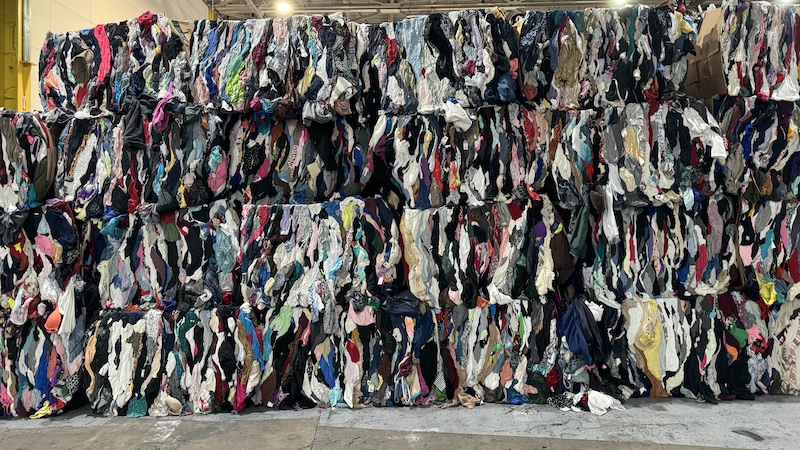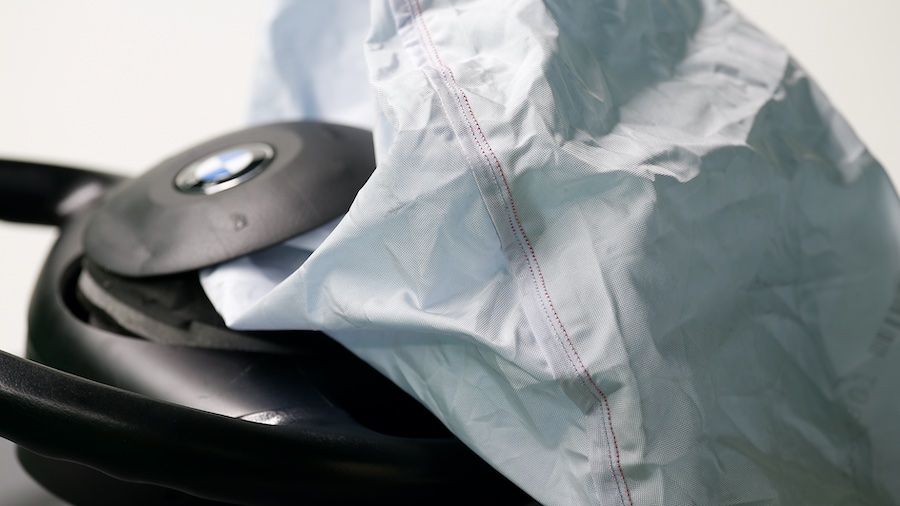#Recycling / Circular Economy
Accelerating Circularity announces global commitment to sustainable textile industry at Clinton Global Initiative Annual Meeting

This approach, known as circularity, tackles the need to reduce the environmental impact of textiles by keeping materials in use longer, ultimately reducing waste and conserving natural resources.
“Our work, amplified by the Clinton Global Initiative, will help us make a difference by reducing waste and pollution and promoting sustainability worldwide. We invite businesses, organizations, and individuals to join us in this effort and help create a more sustainable future for textiles.”
Currently, 92 million tons of textiles end up in landfills each year, while another 116 million tons of new fibers are produced. This wasteful cycle harms the environment, contributing to pollution and the depletion of natural resources. As discarded textiles decompose in landfills, they release harmful gasses into the environment. Additionally, manufacturing new textiles consumes large amounts of water, energy, and chemicals, further damaging the environment.
Accelerating Circularity's commitment will focus on three key initiatives:
Building a market for recycled textiles: Accelerating Circularity will collaborate with brand, retail and manufacturing partners across the U.S. and Europe to recycle 325 tons of used textiles, including 150 tons of cotton, 100 tons of polyester, and 75 tons of other fibers. The goal is to create a strong market where recycled textiles are used to make new products that people want to buy.
Creating a used textile mapping tool: A comprehensive map, the platform will outline the entire recycling ecosystem by pinpointing collectors, sorters, processors, recyclers, fiber producers, yarn spinners, fabric mills, and product manufacturers who can repurpose used textiles into new fibers. It will streamline the recycling process for textiles from various sources—including fabric mills, brands, retailers, and consumers—by identifying the most efficient and environmentally sustainable pathways for converting these materials into new products.
Educational resources: Educational materials will be developed to help brands and consumers understand how to responsibly dispose of and recycle textiles.
Founded in 2019, Accelerating Circularity has proven the power of collaboration through its strategic partnerships. One example is its work with Goodwill Industries, supported by a $1.2 million grant from the Walmart Foundation. This initiative focused on creating new business models for processing the large volumes of donated clothing Goodwill receives each year.
In addition, Accelerating Circularity has brought together key players from across the textile supply chain, including major companies like global textile firm Giotex, Canada-based used clothing collector Bank & Vogue, North Carolina-based yarn manufacturer Parkdale Mills, leading denim innovator Cone Denim, and UNIFI, a global leader in fiber science. Together, they have developed and tested circular textile systems that not only create new materials but have led to finished products currently available at Target (here and here). More products are expected to hit stores in the coming weeks, including Wrangler denim jeans, to be sold at Walmart.
It's important to note that circularity goes beyond traditional recycling. While recycling typically involves reprocessing materials to create the same or similar products, circularity encompasses a broader system where materials are used and re-used for as long as possible, reimagining them into new forms, and only recycling as a last resort. This approach minimizes waste and reduces the need for virgin resources, making it a more sustainable solution.
The commitment launched at CGI on September 23rd and is set to be completed by March 2026. During this time, Accelerating Circularity will leverage their relationships and foster new alliances with major brands, retailers, and recyclers to build the use of circular systems, creating new market opportunities and helping companies reduce their environmental impact.
"I'm honored to lead this important initiative to change the textile industry," said Karla Magruder, President and Founder of Accelerating Circularity. "Our work, amplified by the Clinton Global Initiative, will help us make a difference by reducing waste and pollution and promoting sustainability worldwide. We invite businesses, organizations, and individuals to join us in this effort and help create a more sustainable future for textiles."












